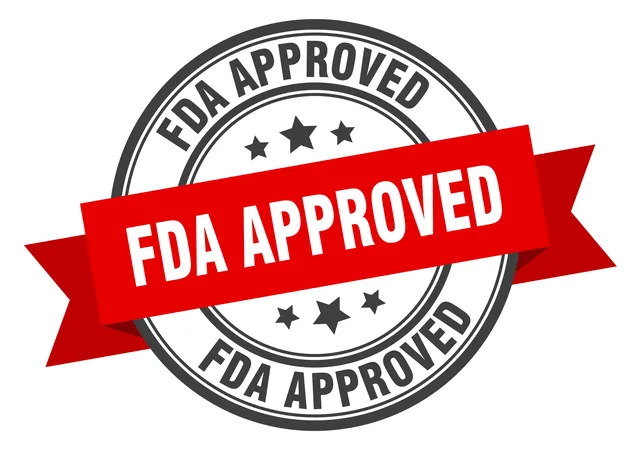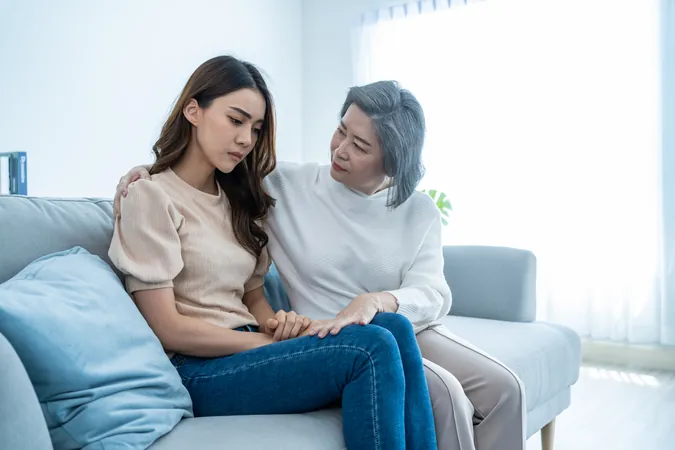
Breakthrough Needle-Free Treatments Approved for Children: What You Need to Know!
2024-12-26
Author: Sarah
Introduction
In the world of pediatrics, a staggering two-thirds of children experience a fear of needles, which can create significant obstacles when it comes to receiving vaccinations and necessary medical care. Even adults aren't immune, as nearly a quarter of them share this common phobia. With the recent advancements in needle-free medication, health professionals are hopeful for a future where these fears no longer hinder essential treatments.
Thomas Casale, MD, a noted expert in Allergy and Immunology at the University of South Florida, highlights the importance of providing alternatives to injections, especially for children. "We know many parents hesitate to administer epinephrine due to their own fear of needles," he explained. "Having needle-free options is crucial for better healthcare outcomes."
Exciting Progress in Needle-Free Solutions
This year has marked significant progress in needle-free treatments, particularly with the FDA's approval of two major products: the epinephrine nasal spray (neffy) for treating anaphylaxis and the FluMist vaccine for influenza prevention.
On August 9, 2024, neffy became the first nasal spray approved to treat anaphylaxis, a groundbreaking development for those at risk of severe allergic reactions. The nasal spray, which is suitable for patients weighing 66 lbs (30 kg) or more, can be administered easily—just one spray in a nostril. If symptoms don't improve after the initial dose, a second spray can be given in the same nostril using a new device.
Dr. Russell Libby, a pediatrician, emphasizes the importance of this innovative treatment. "It’s not just needle-free; it’s also stable for longer periods and can withstand a broader range of temperatures compared to traditional autoinjectors," he said, highlighting the practical benefits for families.
FluMist’s New Self-Administration Option
The FluMist vaccine has also made strides, with its updated FDA approval on September 20, 2024, allowing individuals as young as two years old to have the option of self-administration or administration by a caregiver. This change could significantly improve flu vaccination rates, particularly among young children prone to flu complications. The CDC recommends all individuals aged six months and older receive the flu vaccine annually, as it has been shown to reduce the risk of severe illness by up to 60% in seasons when the vaccine is well matched to circulating strains.
Tina Tan, MD, pediatric infectious disease specialist, pointed out that while FluMist has existed for years, its usage has not met expectations. The new self-administration option may encourage more families to consider this effective vaccination route.
Looking Ahead: The Future of Needle-Free Treatments
Adding to the excitement, Aquestive Therapeutics announced promising results for an innovative epinephrine sublingual film (Anaphylm), aimed at treating severe allergic reactions. Anticipating FDA submission for both adult and pediatric patients, this treatment could join the ranks of other groundbreaking needle-free solutions.
As these needle-free treatments become more widely recognized and implemented, they signal a significant shift in pediatric healthcare, reducing anxiety around medical procedures and potentially increasing overall vaccination and treatment rates. This new chapter in treating allergic reactions and illnesses could be a game changer for families and health professionals alike. Stay tuned for these revolutionary changes that promise to make medical care a lot less daunting for children and their parents!


 Brasil (PT)
Brasil (PT)
 Canada (EN)
Canada (EN)
 Chile (ES)
Chile (ES)
 España (ES)
España (ES)
 France (FR)
France (FR)
 Hong Kong (EN)
Hong Kong (EN)
 Italia (IT)
Italia (IT)
 日本 (JA)
日本 (JA)
 Magyarország (HU)
Magyarország (HU)
 Norge (NO)
Norge (NO)
 Polska (PL)
Polska (PL)
 Schweiz (DE)
Schweiz (DE)
 Singapore (EN)
Singapore (EN)
 Sverige (SV)
Sverige (SV)
 Suomi (FI)
Suomi (FI)
 Türkiye (TR)
Türkiye (TR)